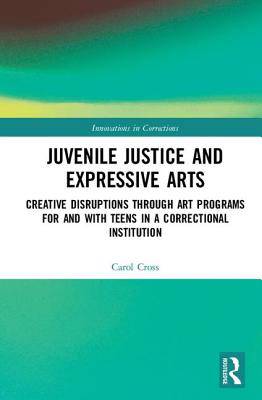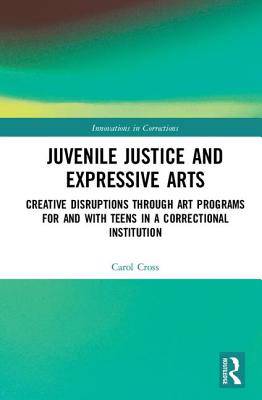
- Afhalen na 1 uur in een winkel met voorraad
- Gratis thuislevering in België vanaf € 30
- Ruim aanbod met 7 miljoen producten
- Afhalen na 1 uur in een winkel met voorraad
- Gratis thuislevering in België vanaf € 30
- Ruim aanbod met 7 miljoen producten
Juvenile Justice and Expressive Arts
Creative Disruptions Through Art Programs for and with Teens in a Correctional Institution
Carol CrossOmschrijving
Juvenile Justice and Expressive Arts: Creative Disruptions through Art Programs for and with Teens in a Correctional Institution explores art programming as a sustainable educational initiative to support incarcerated teens' successful reintegration to society. Responding to a lack of scholarly research on juvenile offenders and the role of art as education in correctional facilities, Carol Cross presents a qualitative study that examines critical pedagogy, adolescent development, and research into the governance and policies surrounding youth at a Canadian correctional facility. Through observational and interview data, action research, and visual analysis, the reader gains an insider's perspective into the lives of teens affected by crime and violence and the potential of art education to aid in increasing their self-esteem, social and emotional wellbeing, and personal development. Visual art and written stories created by male and female juvenile offenders are woven throughout the chapters to illustrate the use of creative expression as education and therapy.
Suitable for scholars and researchers in juvenile justice and corrections as well as policymakers and practitioners in the field, this book will provoke dialogue on best practices for the rehabilitation and reintegration of institutionalized children and youth.
Specificaties
Betrokkenen
- Auteur(s):
- Uitgeverij:
Inhoud
- Aantal bladzijden:
- 198
- Taal:
- Engels
- Reeks:
Eigenschappen
- Productcode (EAN):
- 9780815392347
- Verschijningsdatum:
- 21/02/2018
- Uitvoering:
- Hardcover
- Formaat:
- Genaaid
- Afmetingen:
- 152 mm x 229 mm
- Gewicht:
- 407 g

Alleen bij Standaard Boekhandel
Beoordelingen
We publiceren alleen reviews die voldoen aan de voorwaarden voor reviews. Bekijk onze voorwaarden voor reviews.











